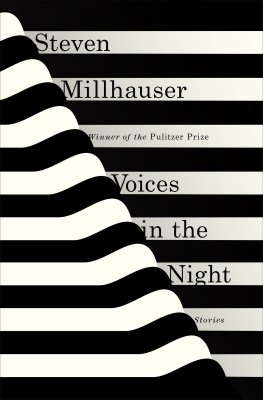Manuel Rivas - The Low Voices
Here you can read online Manuel Rivas - The Low Voices full text of the book (entire story) in english for free. Download pdf and epub, get meaning, cover and reviews about this ebook. year: 2016, publisher: Harvill Secker, genre: Prose. Description of the work, (preface) as well as reviews are available. Best literature library LitArk.com created for fans of good reading and offers a wide selection of genres:
Romance novel
Science fiction
Adventure
Detective
Science
History
Home and family
Prose
Art
Politics
Computer
Non-fiction
Religion
Business
Children
Humor
Choose a favorite category and find really read worthwhile books. Enjoy immersion in the world of imagination, feel the emotions of the characters or learn something new for yourself, make an fascinating discovery.
- Book:The Low Voices
- Author:
- Publisher:Harvill Secker
- Genre:
- Year:2016
- Rating:4 / 5
- Favourites:Add to favourites
- Your mark:
- 80
- 1
- 2
- 3
- 4
- 5
The Low Voices: summary, description and annotation
We offer to read an annotation, description, summary or preface (depends on what the author of the book "The Low Voices" wrote himself). If you haven't found the necessary information about the book — write in the comments, we will try to find it.
Manuel Rivas: author's other books
Who wrote The Low Voices? Find out the surname, the name of the author of the book and a list of all author's works by series.
The Low Voices — read online for free the complete book (whole text) full work
Below is the text of the book, divided by pages. System saving the place of the last page read, allows you to conveniently read the book "The Low Voices" online for free, without having to search again every time where you left off. Put a bookmark, and you can go to the page where you finished reading at any time.
Font size:
Interval:
Bookmark:
Manuel Rivas
The Low Voices
About the Book
The Low Voices draws on a patchwork of memories from Rivass early life under Franco. Theres his beloved elder sister, Mara; his mother, the verbivore; his father, a construction worker with vertigo; and a supporting cast of local priests, chatty hairdressers, wolf hunters and monstrous carnival effigies.
The book is full of wonderful personal stories, set against a background of the ravages of the Spanish Civil War and its aftermath at home, and the wider world as Coca-Cola sets up a factory nearby and news comes in of men landing on the moon.
A brilliant coming-of-age novel from one of Spains greatest storytellers, The Low Voices is a humorous and philosophical take on memory, belonging, and the nature of storytelling itself.
About the Author
Manuel Rivas was born in Corua in 1957, and writes in the Galician language of north-west Spain. He is well known for his journalism, as well as for his prizewinning short stories and novels, which include the internationally acclaimed The Carpenters Pencil and Books Burn Badly. His work has been translated into more than twenty languages.
The Low Voices
To Xess Gonzlez Gmez, author of The Secret Language, who one day, in the Raval in Barcelona, talked to me about the low voices.
1. First Fear
WE WERE ALONE, Mara and I, hugging in the bathroom. Fugitives from terror, we hid in the dark chamber. On stormy days, you could hear the seas roar. Today it was the rusty, asthmatic mutter of the cistern. Finally, we heard her voice. Calling for us. With unease, to begin with. Then with growing anxiety. We had to respond. Show signs of life. But she took the initiative. We heard her panting, hurried footsteps, the eager sniffing of someone picking up a scent. Mara drew back the bolt. My mother pushed open the door, bringing the light with her, a storm still in her eyes. Her fear was that of someone who comes home and finds no trace of the children she left playing calmly. Our fear was more primitive than that. It was our first fear.
My mother, Carme, worked as a milkmaid. We rented the ground floor of a house on Marola Street, in the district of Monte Alto in A Corua. My father had recently returned from South America, from La Guaira, where hed worked in construction, scaling the summits of buildings and climbing the sky on fragile scaffolding. A quick emigration, just enough time to save the money to buy a plot of land. Many years later, in his old age, he confessed a weakness, he who wasnt in the habit of opening up his secret zone: he suffered from vertigo. All his life, hed had vertigo. And a large part of that life had been spent on building sites, as a bricklayers mate and finally as a master builder. Never, until he retired, did he confide in anyone. About his vertigo. About the fact he felt horror inside when he was down on the ground, looking up, and above all when he was up in the air, looking down. Panic from the very first step. But his foot always went in search of the second step. And the second step always led to the third.

The author and his sister Mara
Why didnt you say?
What would happen to a workman who went around saying he suffered from vertigo? Who would take him on? Vertigo? The word didnt even exist!
He almost died in La Guaira, stuck in a hut on the hillside, between the forest and a few other shacks, but only he knew about this. During his fever, his sole connection with reality was the voice of a parrot that kept intoning a womans name: Margarita! Margarita! He knew it existed, this bird. Perhaps the woman as well. One day, he thought he heard, Go cry in the valley, old parrot! But he never saw them, the bird or the woman. When he got better, one Sunday, on his day off from work, he went looking for the parrot. He wanted to talk to it, to offer it his thanks. It had been his only thread to life. But he never found it. My father didnt give this story a magical interpretation. In that place, birds, like people, came and went.
Early in the morning, he would drink a black coffee and leave on his Montesa. Our father, who had returned. Before that, he had a Vespa and then a Lambretta, which formed part of our familys mythology since it could carry us all without a whimper, with that sense of self-denial displayed by certain domestic appliances. That was his breakfast: black coffee, piping hot. Whenever he had a cold or the flu, he would double the dose of coffee and take an aspirin. He had an almost fanatical faith in acetylsalicylic acid. When his body turned against him and one leg refused to walk, he had to be admitted to hospital. The doctors who operated on his leg found traces of at least two heart attacks. Hed survived these attacks in secret, but silences like that usually write in Braille on a tunnel of the body. Only once, in passing, did he remark that hed lost the strength in his arms. Whenever he lifted them to operate on a ceiling, they would put up a heavy resistance. He would look at them in surprise, as at two old, unruly companions. Of the memories that used to make him laugh, one was of his youth as a musician in various dance orchestras and of the drummer so taken up with the others playing that he missed his cue. The paso doble ground to a halt, suspended somewhere in the night, until the conductors apocalyptic command made itself heard: Cymbals, boy! Let the wonders of the world ignite! An order issued in this way, like a cosmic outburst, sounded like part of the spectacle, but it still took the boy a little time to re-establish the connection. Wonders. Cymbals. The paso doble. Him. In the end, the drummer got going and made the whole night tremble. So, whenever my fathers arms grew tired on site, whenever he noticed a lack of energy, he didnt think about a possible heart attack, but about the infallible outburst Cymbals, boy! Let the wonders of the world ignite!
Just as my father couldnt possibly suffer from vertigo, so my mother couldnt possibly fall ill. There were only two moments of real peace. One was on her way to church on a Sunday morning. Not the Mass itself so much as going to Mass. That opiate journey, that translation. The other moment was when she had the opportunity to read. Her turn with the newspaper. Having cooked a meal, cleaned, washed, scrubbed, put everything in order, she had this means of escape. A few minutes of total abstraction. The same with books, any book that happened to be lying about the house. This relationship, this happiness, was admirable. You could shout there was a fire, a flood, anything. Our mother would remain entranced. Trapped. Abducted. She wouldnt reply. Wouldnt even look up. Her only reaction was to draw closer to the object of vigil.
There were times when it seemed it would pass, this business of falling ill. I dont feel so well, Im going to lie down for a while. And the time of healing would last as long as a Mass or a reading. When the disease finally arrived, it wasnt in the manner of the story she used to tell us. It didnt come on a visit.
Who is it? asks the old peasant farmer in bed, surprised by a knock one winters night.
Its me! says an unmistakable voice. Open up at once!
This goes on until the old farmer plucks up the courage to say, Off with you! Theres no one at home.
And Death mutters, Its just as well I didnt come, then.
Thats where I should start. With the murmuring of the first laughter associated with one of her many stories. For instance, a sailor who has survived a shipwreck is captured by a tribe of cannibals. They start cooking him in a pot and add lesser ingredients, tubers and pulses, on the side. As the water heats up and the anthropophagites dance around the fire, building up an appetite, the Galician dives down into his own stew and tucks into potatoes and peas. The head cannibal cries out in admiration, Look how happy our food is! This way of saying goodbye was a form of heroism that filled us with pride. Our hero got eaten by cannibals, yes, but it was an optimistic story. Like the stories by Carlos OXestal we used to listen to on the radio, on a Sunday lunchtime. A bagpiper and storyteller, OXestal was a strange celebrity during our childhood. His heroes were common people, the humblest there were, who triumphed by means of ingenuity and irony. And who spoke Galician, something that was very unusual on radio broadcasts. The biggest laughs OXestal got were when he mimicked those trying to disguise their accent, like covering up a blemish, in such comical situations as that of the young man who missed the ship sailing from A Corua to Buenos Aires, and when he got back home, having never left Galicia, did so talking like a writer of tangos. The Galician language belonged to this world, but there was a problem with it. Places, moments and situations in which it sounded like a sin on the lips. It lived in the caverns of mouths, but somehow eccentrically, like a tramp that studies the path and company before starting to walk. Once an acquaintance of my parents visited them to let them know hed finally been accepted as a janitor at some bank. They congratulated him. My father remarked, Youll have to buy yourself a new suit He replied, with a curious exposition of textile sociolinguistics, Its bought already! Yesterday, I tried it on with a tie. As soon as I tightened the knot, I broke into magnificent Spanish!
Font size:
Interval:
Bookmark:
Similar books «The Low Voices»
Look at similar books to The Low Voices. We have selected literature similar in name and meaning in the hope of providing readers with more options to find new, interesting, not yet read works.
Discussion, reviews of the book The Low Voices and just readers' own opinions. Leave your comments, write what you think about the work, its meaning or the main characters. Specify what exactly you liked and what you didn't like, and why you think so.












